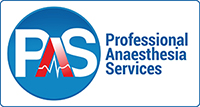FAQs
Most frequent questions and answers about Anaesthesia
Anaesthesia is that branch of medicine that is dedicated to total care of a patient undergoing surgery and the relief of pain. Total care includes preparing you for surgery, being responsible for pain relief in the early recovery phase as well as treating complications that may result from the anaesthetic. Anaesthesia has been a leader in ensuring that surgery is safe.
Before your operation you will meet an important specialist physician. A vital member of the surgical team, the anaesthetist is responsible for keeping you safe and comfortable during and after your operation.
Anaesthetists give more intravenous drugs than all other types of physicians combined. Anaesthetists are the only physicians with expert knowledge of the extremely potent drugs during your surgery to ensure ‘sleep’ (when needed – see regional anaesthesia) and absence of pain. Anaesthetists are familiar with all medical conditions and their implications for patients undergoing a wide range of surgeries. They have experience in giving an anaesthetic for all surgical procedures. They provide care to all ages – from premature babies to elderly patients
An anaesthetist is a doctor who has further specialised in anaesthesia after finishing a university medical degree. Your anaesthetist has done many years of training, including extensive training in pain management, resuscitation, Intensive/Critical Care as well as other specialist areas such as obstetrics and paediatrics.
Anaesthesia is often regarded as “just going off to sleep”. However the reality is that “going off to sleep” and the medications used to “go off to sleep” have a big impact on the body and organ systems. The surgery itself also causes great stress on the body. In fact, without anaesthesia most operations would not be possible because the body would not be able to cope. It is because of the work of anaesthetists that a lot of modern advances have been possible. Your anaesthetist is responsible for your safety and care during surgery and the recovery from the operation. The anaesthetist will stay with you for the duration of the operation, making sure that you are anaesthetised and will constantly monitor vital functions such as breathing, heart rate and blood pressure. Another important role is to give pain relief so that when you wake up, you will be comfortable.
Australian trained anaesthetists are physicians who have completed a medical degree, followed by medical practice and then five or more years of post-graduate training (being called ‘registrar’) in the field of anaesthesia. During their registrar years, anaesthetists are extensively trained in human physiology (how the body works), particularly the brain, heart, lungs, kidneys and liver. At least six months are spent in critical care units, such as coronary care, neonatal, paediatric and adult intensive care. By the end of their training they have become experts on anaesthesia, resuscitation, critical care, and pain management. They then take the specialty examinations of the Australian New Zealand College of Anaesthetists and become qualified specialists in Anaesthesia.
The anaesthetist will need to talk with the patient before surgery. Traditionally this used to occur in hospital the night before the operation. Now most patients arrive in hospital on the morning of surgery, often shortly before the scheduled time of the operation. The anaesthetist needs to ensure that the patient is fit for the surgery, plan the type of anaesthetic, and organise pain relief for after the operation.
Important information to tell your anaesthetist includes;
- Previous operations and whether there were any problems with anaesthesia.
- Any serious complications experienced by family (blood relatives) during anaesthesia.
- Abnormal reactions to medications and any allergies.
- Medical problems or any recent illnesses. Especially of interest is heart disease and breathing problems.
- List any medications that you are taking. Bring all your prescribed medications into hospital.
- If you suffer from acid reflux or heartburn.
- If you have had a Laparoscopic Gastric Band (Lap Band) or other weight loss surgery.
- Loose teeth, capped teeth, dentures, veneers or bonding.
- Any other concerns.
Professional Anaesthesia Services has a system where patients can be consulted preoperatively. This is usually for the more complicated operations, but also for patients with significant medical conditions or who have particular concerns about the operation or anaesthetic. Our staff will arrange an appointment for the patient at a time before the operation, if necessary.
In most instances, take your normal prescribed medications with a sip of water regardless of whether you are fasting. This is particularly important for those patients taking heart medications and blood pressure medications. If you are a diabetic, discuss a plan for managing your diabetes with your anaesthetist prior to surgery.
Sometimes surgeons will ask you to stop aspirin and other blood thinning agents (eg. clopidogrel, warfarin). If you have any questions, please discuss with your anaesthetist prior to the operation.
In a normal state, your body has defences to prevent stomach content from coming up. Unfortunately when you are unconscious this mechanism does not work, so it’s best that your stomach is empty when you have a general anaesthetic. In emergency surgery when you may have eaten recently, your anaesthetist will take special precautions to reduce the risk of aspiration. If your period of fasting is inadequate your operation may be postponed.
You should therefore have no food (including lollies and chewing gum) or drink for up to six hours before your operation.
Also, some patients need medication preoperatively and this can be taken with a sip of water under the direction of your anaesthetist.
Even if you are booked to have a regional or local anaesthetic, it is important to follow the instructions about not eating and drinking, just in case it becomes necessary for you to have a general anaesthetic.
Your anaesthetist remains in the operating room to monitor your safety. He or she will make sure you are safe, pain free and recover comfortably after your procedure.
